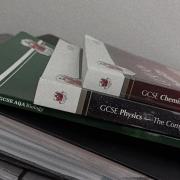
Parents commonly turn to hitting their children as a means of disciplining them, but where is the boundary that has to be crossed which turns a simple smack, as a result of unacceptable behaviour, into child abuse.
The Merton Multi-Agency Safeguarding Hub (MASH), a partnership of education and social care staff from Merton Council, the police and the NHS working together to protect children, is supporting the ‘Together, we can tackle child abuse’ campaign launched by the Department for Education this month. It is urging residents who suspect that a child they know may be at risk of harm to report their concerns. Merton Council’s Cabinet Member for Children’s Services, Councillor Katy Neep said: “We have a zero tolerance of any abuse or neglect of a child, historic or current, and we are working closely with our partners to tackle child abuse.”
The primary question, however, is whether UK rules are clear and restrictive enough, in order to ensure that children are not abused by their parents, since smacking as a form of discipline is not strictly prohibited by UK law. According to the NSPCC, over 49,000 children in England were identified as needing protection from abuse last year. Article 19 (Protection from all forms of violence) of The United Nations Convention on the Rights of the Child says: ‘Children have the right to be protected from being hurt and mistreated, physically or mentally. Governments should ensure that children are properly cared for and protect them from violence, abuse and neglect by their parents or anyone else who looks after them.’ However, it seems that the UK has ignored this rule as hitting a child causes harm, physically, and, arguably, mentally aswell, because, it may lead them to fear, not only their parents, but also making mistakes, as they may begin to associate mistakes with pain. In addition, if parents slap their children, the same children that see their parents as role models, these children may possibly grow up to believe that violence is acceptable in certain circumstances, which it is not. Murray Straus, Professor Emeritus of Sociology at the University of New Hampshire, has said, "More than 100 studies have detailed these side effects of spanking, with more than 90 percent agreement among them. There is probably no other aspect of parenting and child behaviour where the results are so consistent."
It has been argued, through public commentary on a BBC documentary, that phrases such as ‘it teaches them a lesson’ and ‘a smack tells a child to stop’ are pitiful justifications for a lack of parental ability to effectively discipline children. Violence is wrong, no matter what the circumstances are that it is used under, and parents should not be influencing their children to believe otherwise. A study by Wisdom in 1992 concluded that abused children and 53% more likely to be arrested as a juvenile. Parents are responsible for disciplining their children, but in my opinion, they should be able to do so in ways that do not involve inflicting pain on their children.
With a lack of UK regulations to prohibit parents from smacking their children, I feel our future generations are at risk of growing up in an environment which portrays violence to be ‘normal’ and ‘justifiable’. The 'Together, we can tackle child abuse campaign' is aiming to help children in such situations, who need to be protected. Councillor Katy Neep said: "It is a difficult decision to tell us that a child you know is at risk of harm, but please don’t wait until you feel certain or dismiss your fears as a one-off incident. Anything you notice could help a child at risk."
Lillie Rodger
Ursuline High School



























